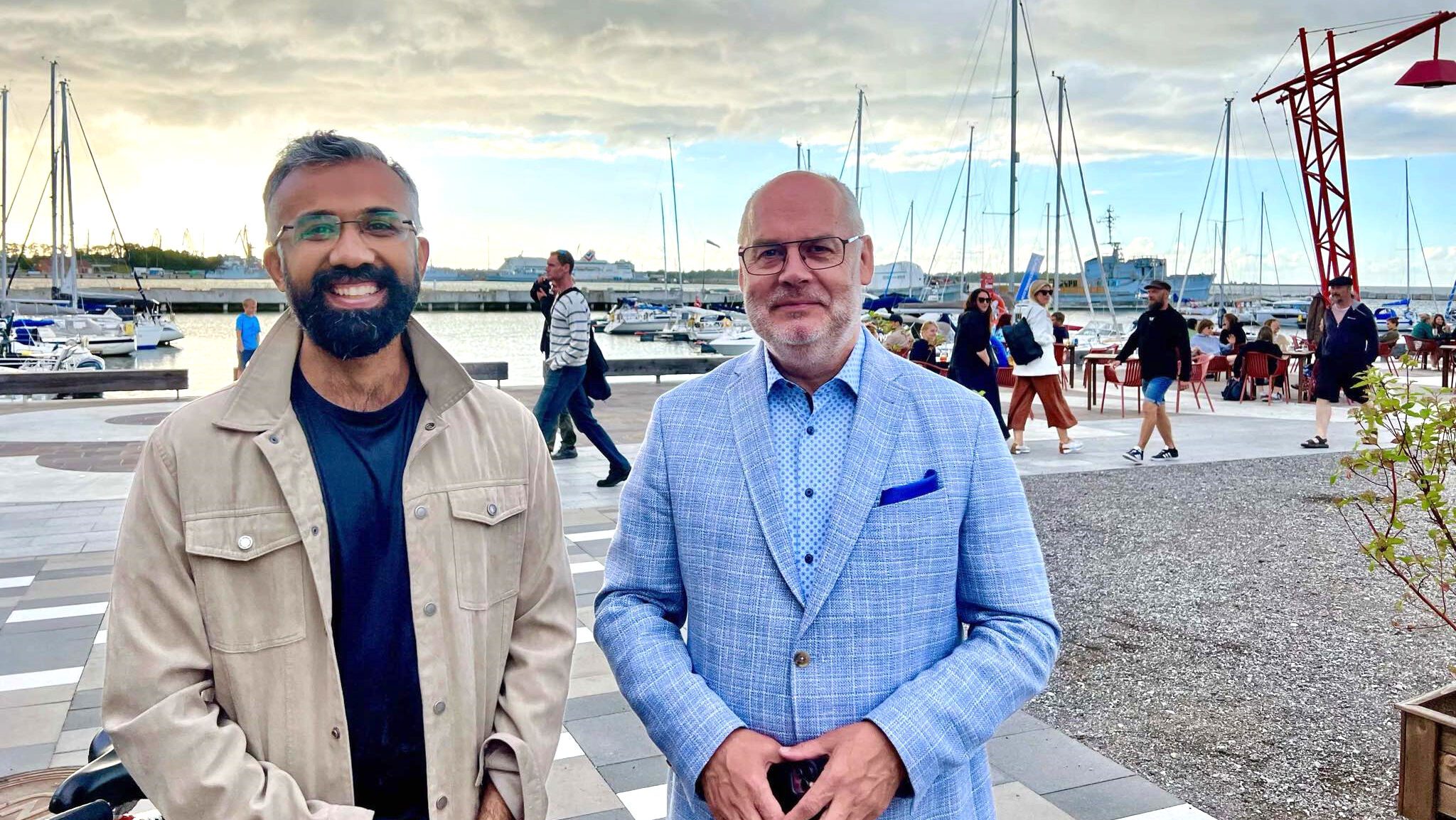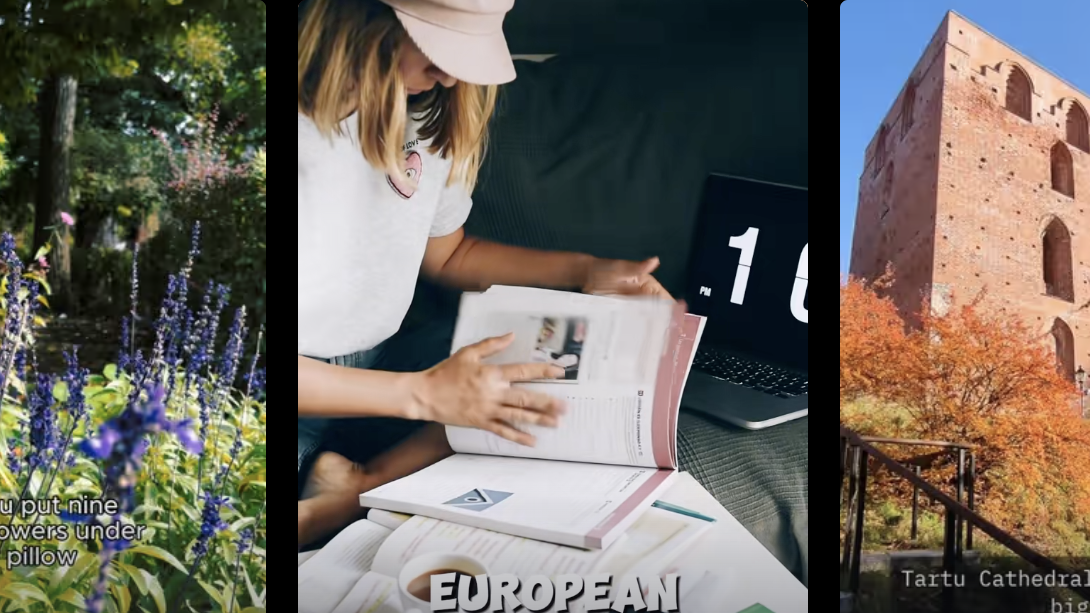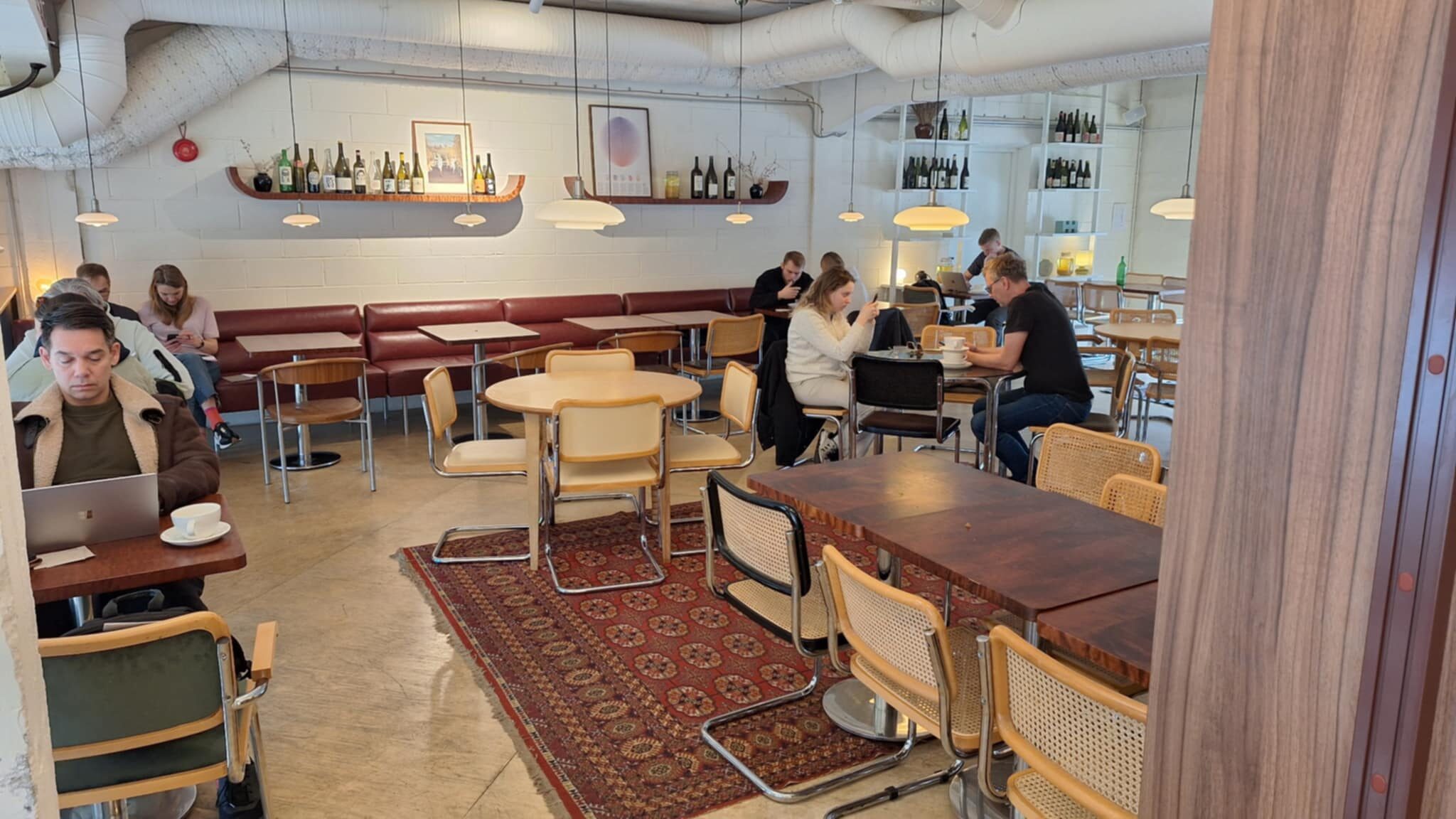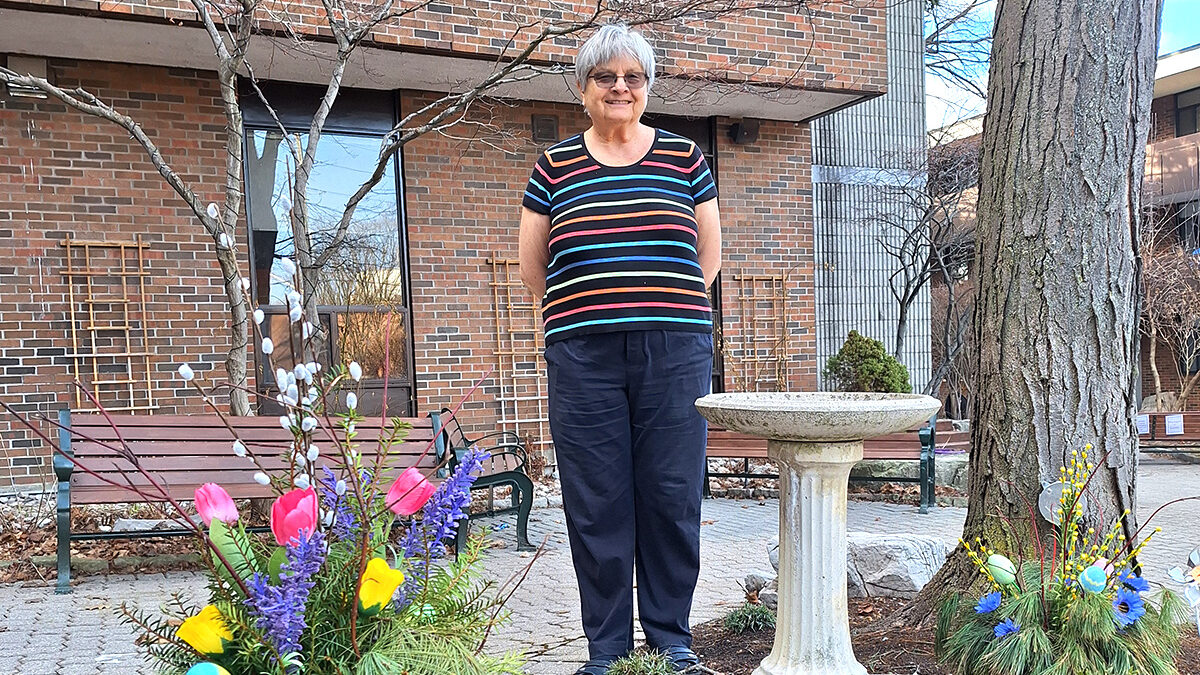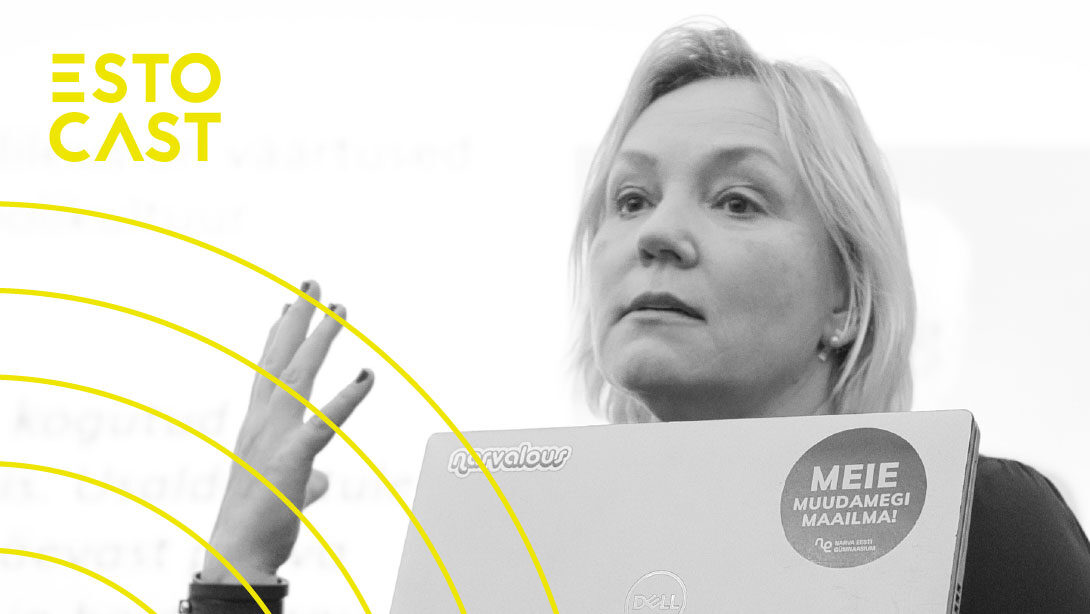Have you ever wondered what it’s really like to build a new life in a foreign country? How do you find your place while navigating the challenges of being an outsider?
These were some of the questions on my mind when I first came across Hafiz Abdul Manan on YouTube, where he shares his insights on life in Estonia from the perspective of an immigrant. His genuine desire to provide useful information, build connections, and help others immediately resonated with me.
Manan, a mechanical engineer from Pakistan, relocated to Estonia a decade ago through the Erasmus Mundus program, to study design. Since then, he has firmly established himself here, and today, he is widely recognized for his engaging social media content that highlights different aspects of life in Estonia. Manan also runs a small agency that helps businesses with content creation.
As an immigrant myself, I understand how tough it can be to adjust to a new country, and I am truly impressed by how Manan manages to balance multiple creative and business tasks — his work, YouTube channel, and blog, all while finding time to travel.
Fascinated by his multifaceted personality, I reached out to Manan for an interview to gain deeper insights into his experiences, particularly on sensitive topics like xenophobia, discrimination against immigrants, and ways to overcome these challenges. We chose to meet at Literaat in Telliskivi, a cozy restaurant close to Kalamaja, where he has lived for many years. Over coffee, we reflected on his first decade in Estonia — a significant milestone — and delved into his perspectives on the country, his role within it, and his plans for the future.
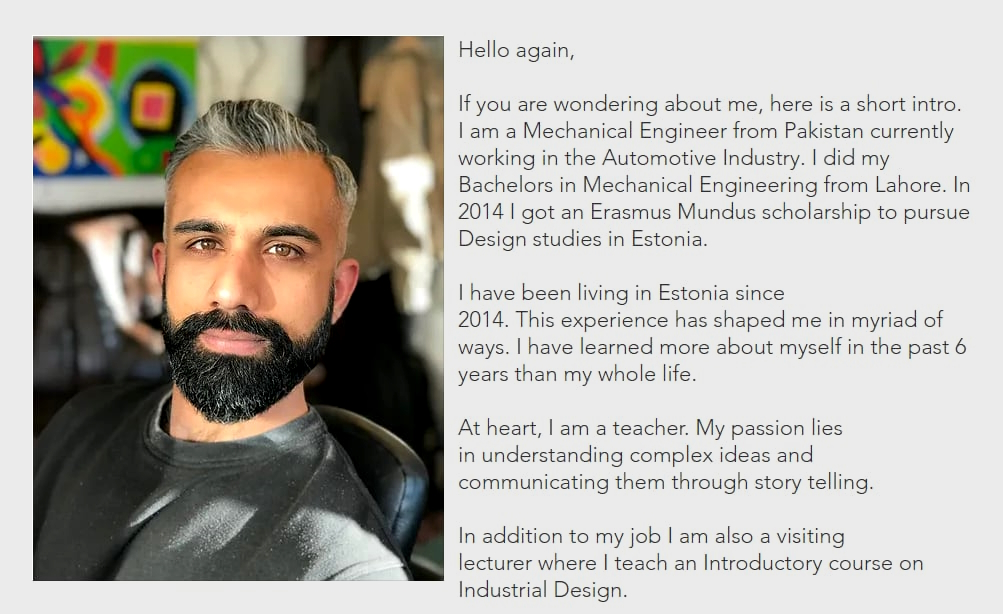
You seem to juggle many tasks. How do you manage your blog, YouTube, and other responsibilities?
I’m quite introverted, so I spend most of my time focusing on work rather than socializing. I've been consistent with my YouTube channel, posting weekly for about four years, except when I took a brief break. My approach is to work a little every day. I think I just like to be very patient and persistent.
Your blog is very professional. Do you have any help managing it?
No, I created it entirely on my own. It’s something I did because I wanted to, and I managed everything myself.
What were your expectations when you first arrived in Estonia, and how did reality compare?
When I came to Estonia in 2014, there was very little information available about the country. I knew it was a former Soviet-occupied state and that it was cold, but I had no specific expectations. I took everything as it came.
Did you experience loneliness when you first arrived?
Initially, I didn’t feel lonely because I was in a study program with regular social interactions. However, after finishing my studies and starting work, I began to feel loneliness.
[Loneliness is] when you feel that you are not able to communicate or are not able to share what you really feel. You can be around people and feel lonely nevertheless.
(Hafiz Abdul Manan)
How did you overcome it?
One quote that I really like is from Carl Jung, who said that loneliness is not just about being alone. It's when you feel that you are not able to communicate or are not able to share what you really feel. You can be around people and feel lonely nevertheless. For me it was challenging, but expressing myself through content creation helped. I also learned to value time spent alone as an opportunity to build a relationship with myself.
How about maintaining ties with Pakistan — can you still travel back to see your parents?
I became an Estonian citizen last year, and because Estonia doesn’t allow dual citizenship, I had to give up my Pakistani passport. Fortunately, Pakistan offers an ID card for people who were born there but are no longer Pakistani citizens. This Pakistan Origin Card (POC) gives me many rights, like living, staying, buying property, and working in Pakistan. The only thing I can’t do is vote, but I’m still able to visit my parents and do almost everything else.
Is there a significant Pakistani community in Estonia, and has it influenced your experience?
The Pakistani community here is quite small. When I first arrived, there were very few Pakistanis, and even now, the community isn’t large. While I’ve connected with some Pakistanis who have lived here for a long time, they haven’t been a major part of my experience.
Regarding your social circle, do you generally communicate more with immigrants or with locals?
My social circle has evolved over time. Initially, it was mostly work-related, with colleagues being my primary contacts. Living in Kalamaja, which is a hub for expats, helped me meet people from various backgrounds. Now, my circle includes a mix of locals and immigrants from places like Ukraine, Russia, and countries in Asia. It’s still small, but through my online presence, I’ve become more connected with the wider community in Estonia, including both expats and locals.
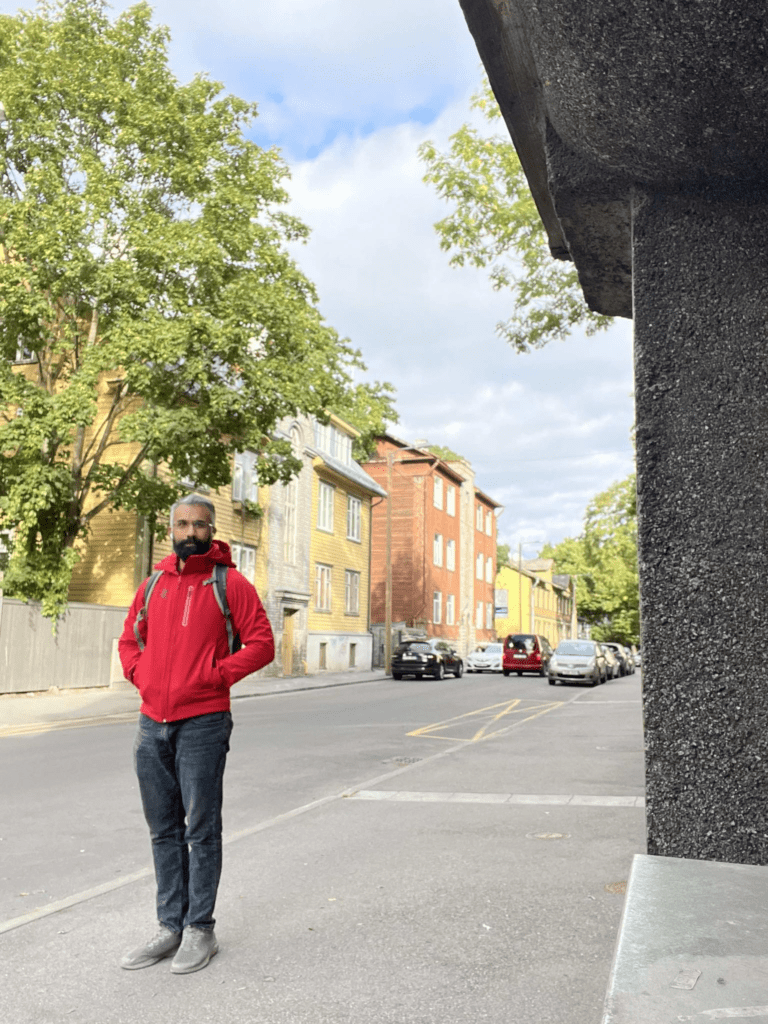
Why do people usually reach out to you?
It’s a mix, really. Some people are interested in interviews, but more often, they’re reaching out for advice. They might be planning to move to Estonia or struggling with some aspect of life here, like extending their stay or dealing with residence permits. I try to help where I can, sharing my own experiences and the knowledge I’ve gained over the years. It’s important to me to help and support others who are going through the same challenges I faced.
I learned early on that Estonians have a very personal relationship with their language. It's deeply important to them, perhaps even more so than in other cultures.
(Hafiz Abdul Manan)
Let's talk about language barriers. Before you learned Estonian, did you encounter situations where you spoke English to someone, like a shop assistant, and they responded in Estonian when there was no doubt that they knew English?
I think that has happened very rarely to me. One of the things I always try to do is be very mindful. I usually begin by speaking a little Estonian and then ask in Estonian if I can speak in English. This approach usually leads to either them trying to help in English or finding someone who can. I learned early on that Estonians have a very personal relationship with their language. It's deeply important to them, perhaps even more so than in other cultures. For example, the way Germans love their language is not the same as the way Estonians love theirs. Estonians have a much stronger connection to their language.
Have you experienced any discrimination in Estonia because of your appearance or nationality, both before and after learning Estonian?
It's not an easy topic. To comprehend it fully, you have to understand Estonian society and the role of foreigners in it. Estonia has [had its independence restored] for only about 32 years, and before that, it was heavily occupied by the Soviet Union. So, Estonia has had very little contact with the outside world, especially in terms of expats and people from different cultures. Compared to Finland, which has a large population of foreigners, the attitude in Estonia is different. Here, it's more about surprise and sometimes fear when encountering someone who is a stranger.
The first reaction can be, “Who is this person? Should we be afraid of them? Are they someone we don’t want here?” This fear often comes from a lack of information and familiarity. When it comes to discrimination, it’s very difficult to pinpoint it exactly. You can’t always say, “This happened because I’m a foreigner or because I look different.” People won’t tell you directly, but you notice it in small gestures — like when someone avoids sitting next to you on a bus.
Could you share an example of the most striking instances of discrimination you have encountered in Estonia?
One of the most memorable incidents occurred while I was speaking English with an Estonian friend on a train, and a woman, who wasn’t very old, walked past me and just said, “Go home.” That was one of the clearest instances. Then there’s my neighbour, who has consistently had problems with me over small things. These experiences make it clear that discrimination does exist, even if it’s not always overt. Over time, you start to see patterns.
Did you say anything to that person on the train?
No, I didn’t even have a chance. My first reaction in tough situations is usually to freeze. I just froze, and before I knew it, the person had already walked away. I didn’t know what to say or do in that moment.
How do you advise other expats and immigrants to deal with situations where they face discrimination?
One thing I always tell other expats and immigrants is that there’s a tendency to feel indebted to the country that brought you here. You feel extra pressure to be a good citizen, to not make any waves, to avoid doing anything wrong. But this attitude can be harmful. If someone discriminates against you and you don’t respond, it can encourage them to do it more, like a bully who goes unchecked. That’s why I always advise people to stand up for themselves if something like that happens.
Europe is based on the principle that all people have rights, regardless of colour, religion, or anything else. If someone tells you to “go home,” you should respond to them in the same language, assert your rights, and not be afraid of making waves. I used to avoid confrontation, to numb myself to this kind of behaviour, but I realized I had to stand up for myself.
Absolutely.
There is discrimination, but it’s not always because of your colour or nationality. Often, it’s simply because you’re a stranger, someone unfamiliar. The first response to something unknown is often fear. However, I’ve noticed that the younger generation, especially those who grew up with TikTok and other global platforms, are much more tolerant. They’ve been exposed to different cultures online, and even if they haven’t seen much diversity in real life, they are generally more open-minded. Still, there is an element of fear that leads to discrimination in Estonia, and this is understandable given everything I mentioned.
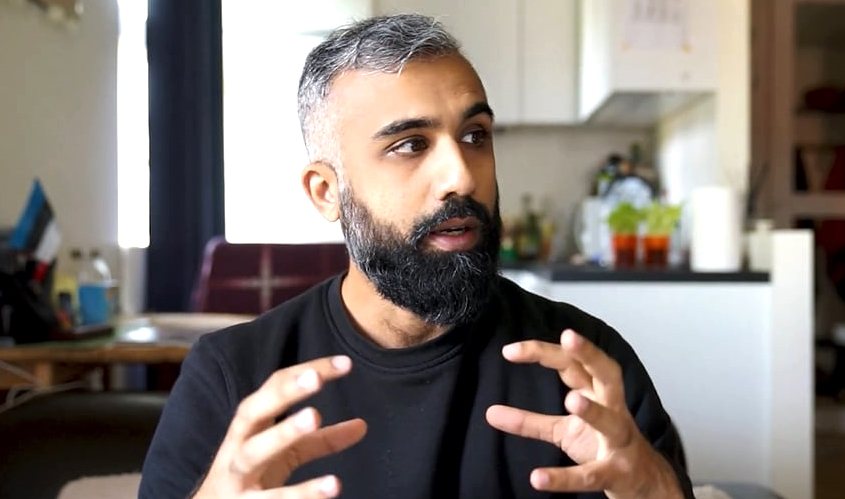
Looking to the future, now that you’ve lived in Estonia for 10 years, how do you envision the country’s developement over the next decade, especially in terms of immigration and integration?
Estonia has made great strides in branding itself as a startup-oriented and highly digital society, but it can’t rely on that alone moving forward. The income disparity between those in IT and other sectors has grown, and the cost of living has risen. Estonia needs to develop a new competitive edge, perhaps in high-end manufacturing or electronics, to create more opportunities and balance the economy. As for immigration, Estonia will need to attract foreign talent to sustain its growth, but the society isn’t fully prepared for this influx. There’s still fear and resistance, and this is where state institutions and companies that bring in foreign workers need to do more to communicate with the local population, particularly at the grassroots level. It's crucial to explain that these workers are not taking away jobs but are actually contributing significantly to the economy by paying taxes and creating new businesses. If this communication doesn’t happen, the risk is that foreign workers will remain isolated, living in bubbles and not integrating into society.
What role do you see yourself playing in the process of this integration?
As for my role, I initially started creating content about Estonia because there was a lack of information. Now, whether I like it or not, I've become a kind of face for Estonia, at least on platforms like YouTube. I’ve created many videos about life in Estonia, but I think there's more to be done, particularly in collaboration with state institutions and organizations that work on integration and immigration. I would like to establish closer business ties with them to help bridge the gap between expats and locals. However, despite my efforts to reach out, I haven't received much positive response from these institutions. I think it would be ideal if they recognized the role I play as a first point of contact for many people interested in Estonia. There could definitely be ways to collaborate, but it requires willingness from both sides.
Why do you think they don’t want to collaborate from their side?
I’m not sure. One thing I’ve always tried to do from the very beginning is explore both the positive and negative aspects of Estonia. I’ve been very critical as well as complimentary. I don't know if my critical perspective is viewed positively by these institutions. If you’re a state institution paid to promote Estonia, you probably can’t tell people, “This isn’t the right place for you.” But I can say that. I think that now I have enough social capital to stick to my own views. Maybe that’s why they are reluctant to work with me, but I’m not certain. I respect their decision, though. I enjoy the freedom, independence, and autonomy I have. I can say anything I want because nobody is paying me to say anything. That’s the best part.
Estonia should focus on promoting more than just its IT sector. The country has beautiful nature, a sense of solitude, safety, law and order, a great schooling system, and a good healthcare system compared to many other countries.
(Hafiz Abdul Manan)
If you could improve one or two things about Estonia what would these things be?
One improvement would be to increase the presence of Estonian embassies, especially in countries where there’s a growing interest in studying or working in Estonia. For example, India has an Estonian embassy, but Pakistan does not, which makes it very difficult for students and others interested in coming to Estonia. They have to travel to other countries for visa interviews, which is an extra burden, especially with the restrictions on Pakistani passports. More support in this area would be very helpful.
Additionally, Estonia should focus on promoting more than just its IT sector. The country has beautiful nature, a sense of solitude, safety, law and order, a great schooling system, and a good healthcare system compared to many other countries. These are the aspects that should be highlighted more. I know many people who moved away from Estonia with their kids but eventually returned because they realized it’s the best place to raise children. Estonia shouldn’t only be seen as a place for entrepreneurs or IT experts; it’s also a nice place to live, and that should be promoted.
And finally, Estonia needs to appreciate people from other countries and their contribution in social and economic life. You can’t enjoy the benefits of a global society without accepting the diversity that comes with it. You can’t have Indian food, Mexican spices, and foreign talent working in startups without also having a society that embraces those cultures and people.
What are your main life values, and how have they guided your journey so far?
That’s an interesting question. I think one of my main values is the intrinsic worth of every human being. No matter what kind of person you are, there is value within you that goes beyond appearance or background. This idea has been touched on by many philosophers and spiritual traditions. For example, German philosopher Kant talked about the inherent value of consciousness, which he considered the highest value. Eastern traditions like Buddhism and Hinduism also emphasize the divine spark within every person. Once you recognize this within yourself, you begin to respect every person from the start. This is a value that took me a long time to fully understand, but it’s now central to how I see the world.
Another important value for me is personal responsibility. This is something I’ve learned in Estonia. In Eastern cultures, life is often seen as tied to family and collective achievements. You might not do something because your family wouldn’t approve. But in Estonia, there’s a strong emphasis on individual responsibility. You’re responsible for your own life and happiness. This is a value that Estonia has really ingrained in me over the past 10 years.
That sounds profound! What would you like to wish to the readers of this interview?
I would wish them the same thing I’d tell myself: be a little more fearless. Whatever it is that you’re afraid of or hesitant to do, take small steps toward it every day. Even if it’s just a tiny step, moving in that direction can make a big difference. Often, the limitations and prisons we feel we are trapped in are just in our heads. It’s up to us to break free from them.
Jerry Mercury, Tallinn, September 2024
